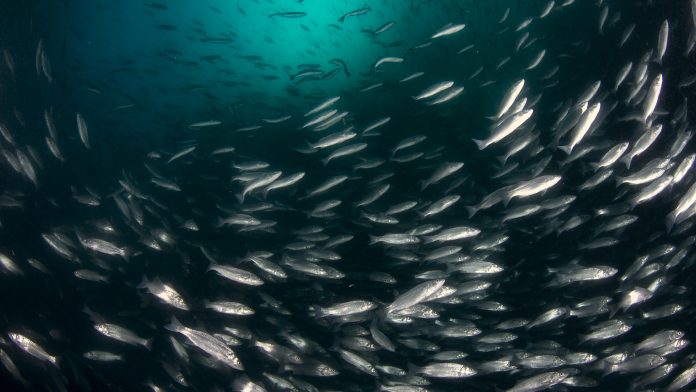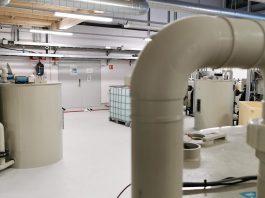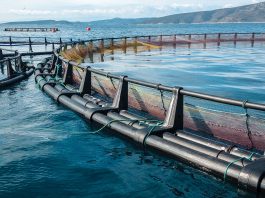Research organisation RASLab is collaborating with microbiome start-up KYTOS to improve the future of fish farming with microbiome management services in recirculating aquaculture systems.
Used for fish production, recirculating aquaculture systems (RAS) rear fish at high densities in indoor tanks and offer a ‘controlled environment’. The systems continually filter, treat, and reuse water to increase the operational efficiency whilst simultaneously reducing risks from pollution and pathogens.
The microbial health of the rearing water and biofilter of RAS is crucial for maintaining optimal water quality for land-based fish farms.
The importance of microbial health in recirculating aquaculture systems
Microbial communities that are operating at nominal capacity remove both organic and inorganic elements from the system.
Ammonia, a toxic component for fish, is metabolised by specialised organisms called ammonia oxidising bacteria (AOB) and ammonia oxidising archaea (AOA), while organic substrates are degraded by heterotrophic bacteria. The production of toxic hydrogen sulphide, as well as off-flavour compounds such as geosmin, have been traced back to a microbial origin.
As a result, the close interaction of the rearing water with the fish requires RAS operators to now get a firm grip on the microbial health of their systems.
Thus far, the vast diversity and complexity of microbial life, combined with a lack of available measurement and software technologies, has precluded the development of toolboxes to manage these systems towards optimal operational performance.
RASLab and KYTOS partner to strengthen Norway’s RAS market
Located in Bergen, at the heart of the aquaculture industry in Norway, RASLab offers state-of-the-art research facilities for research into sustainable land-based fish farming. The organisation focuses on recirculating aquaculture system technology to transform the future of fish farming.
Now, RASLab has partnered with microbiome technology start-up KYTOS to offer commercial services to manage and optimise the microbial health and performance of RAS systems.
KYTOS offers a unique quantitative overview of the microbiome in the water and biofilter through its RASCheck, RASScreen, and RASManage service programmes that complement RASLab’s RASseq services where next-generation sequencing identifies all of the bacteria in the biofilter.
By undertaking these combined analyses, it becomes possible to understand how microbiome management decisions affect the biofilter in terms of performance and resilience, as well as the total microbial environment of the recirculating aquaculture systems.
Using this information, bespoke services can be offered for optimising system and fish performance. Starting this August, RASLab customers can benefit from these combined.
Ruben Props, Co-founder and CEO of KYTOS, said: “With RASLab, we have identified a great commercial and R&D synergy for our RAS services. This collaboration aids us in fulfilling our core mission of making microbiome management tools smarter and more accessible to the industry.”
Mark Powell, CEO of RASLab, said: “Our RASseq services are complemented by the KYTOS toolbox. This collaboration fits in nicely with our provisions of microbial and lab support services to the industry and our research customers and is yet another part of how we drive for ‘innovating the future of aquaculture.’”
Comprehensive microbial health assessments for RAS management
Alongside the disease-bearing microorganisms, it is also essential to monitor the microbiome health from the beginning of the crop to take timely intervention to prevent microbial dysbiosis.
Both RASLab and KYTOS specialise in state-of-the-art microbiome technologies and recirculating aquaculture systems.
KYTOS uses Big Data and Artificial Intelligence (AI) to reduce aquaculture’s unpredictability by creating practical tools that help make informed management decisions. Its services leverage flow cytometry, which is the most performant single-cell technology available today.
This high-throughput technology can analyse thousands of cells per second and measures detailed characteristics of each cell. KYTOS’ powerful proprietary algorithms deliver a comprehensive report of the microbiome characteristics. Its KytoApp cloud-based platform collects these insights and makes them readily accessible to its customers.
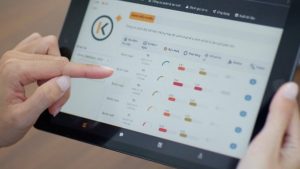
Today, KYTOS technology can already characterise most of the microbial life (fungi, bacteria, and algae) in the water, sediment, and fish of a farm. Functional indicators, devised using Machine Learning, connect these data to farm actions such as water maturation, disinfection efficacy, and nitrifier activity.
Complementary to KYTOS’ functional approach, RASLab’s RASseq service targets the genetic information of the microbiome to obtain detailed information about the bacterial community. Previous work has already shown significant differences in nitrifier communities between RAS systems operating under different salinities.
RASLab’s unique and modular infrastructure enables the development and testing of new microbial health indicators. With 12 independent small-scale RAS systems and a stock of three (fully sequenced) biofilter options (freshwater, brackish water, and full seawater), RASLab can offer studies of the microbial environment from 5-30°C for any Norwegian aquaculture species.
Combined with KYTOS and RASlab’s RAS and lab services, this powerful combination of microbiological tools for monitoring both fish health and RAS system performance will enable both companies to test new microbial health indicators for recirculating aquaculture systems.
A full service for RAS farmers and technology providers
KYTOS will work closely with RASLab to service farm customers via routine full-service programmes, which means that bespoke sampling programmes will be implemented, and all sampling materials and sample logistics are arranged.
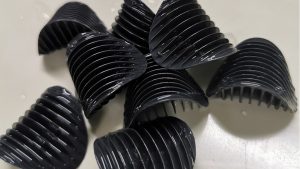
The KytoVial sampling system enables biosecure microbiome sampling of the farm. The KYTOS AI engine will process the microbiome data to provide clients with rapid results of up to ten microbiome health indicators.
Digital reports are accessible online and via its secure KytoApp mobile application. Ongoing contract research at RASLab being executed will also be available to be supported by KYTOS technology.
It is now possible for customers to choose to use the KYTOS technology for monitoring the microbial environments of the fish and RAS systems during research activity that is being carried out at RASLab.
More about Marineholmen RASLab
Marineholmen RASLab AS is a contract research and innovation company with a focus on land-based aquaculture and recirculating aquaculture systems technology. The company is part of the Ocean Innovation Norwegian Catapult, facilitating testing and consultation on innovation for use in the aquaculture sector.
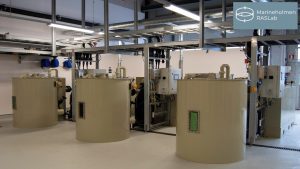
RASLab also offers a number of laboratory services available to its research customers as well as external clients, including microbiome analysis, fish welfare monitoring and off-flavour analysis. These services provide a powerful set of tools for better management and operation of land-based aquaculture systems.
More about KYTOS
KYTOS is a microbiome technology company developing microbiome management solutions at the frontier of technological innovation. Originating from the Center for Microbial Ecology and Technology (CMET) at Ghent University, KYTOS builds on decades of world-leading expertise in microbiome management.
We transform farmers into expert microbiome health stewards by empowering them with a unique blend of data science, technology, and microbial ecology insights.
Please note, this article will also appear in the fifteenth edition of our quarterly publication.

